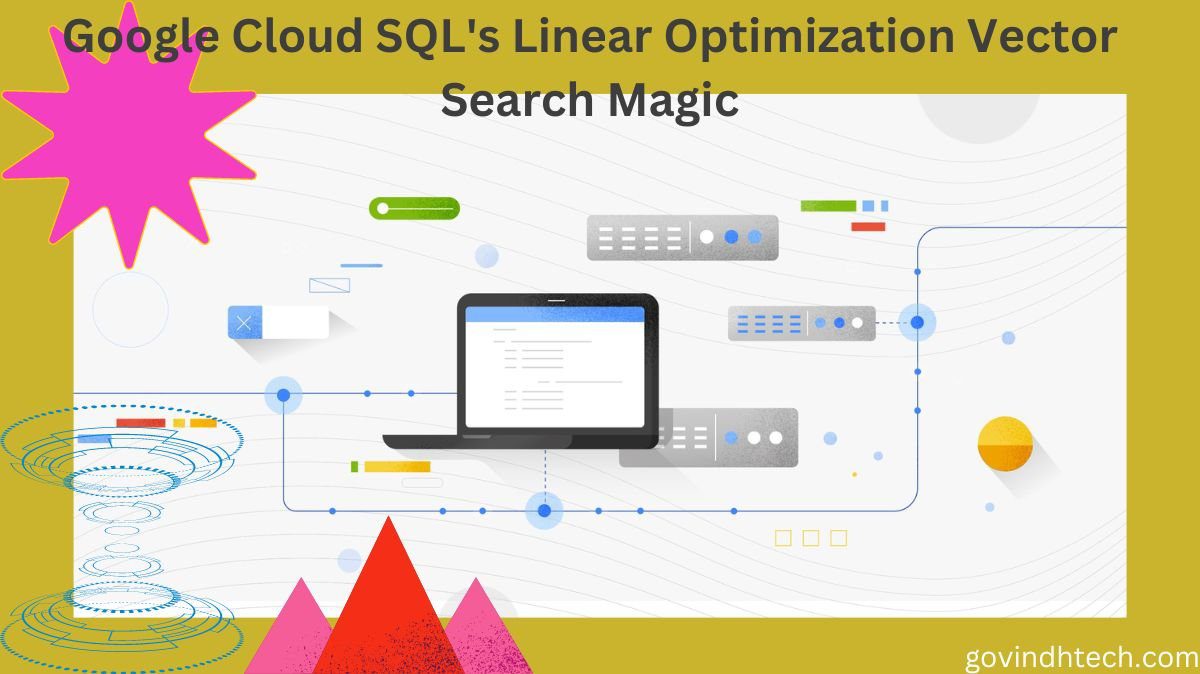On Google Cloud SQL, linear optimizes data and scalability with vector search capability
The goal of Linear is to enable product teams to deliver excellent software. In order to assist customers in streamlining processes throughout the product development process, They have dedicated the previous several years to developing an extensive project and problem tracking system. Although began as an issue tracker, have developed software into a potent project management tool for users worldwide and cross-functional teams.
For example, Linear Asks streamlines cooperation for users of her platform who don’t have Linear accounts by enabling businesses to handle request processes like bug and feature requests over Slack. Furthermore,Have included a feature called Similar Issues, which keeps duplicate or overlapping tickets at bay and guarantees more accurate and clearer data representation for expanding businesses.
Workflow and product management tools are becoming more and more necessary as clients’ companies expand and they have more users on the platform and problems to monitor. Her goal is to facilitate this expansion while maintaining her high standards for performance, stability, quality, and features that enable intricate technical setups and excellent user experiences.
Looking for a vector search database that is scalable
Google had a PostgreSQL database with the pgvector extension hosted on a PaaS during early development period, however it wasn’t indexed or used for production workloads.They had to update databases to handle production workloads and find a solution that supported vector search, since this is the most effective approach to categorize and detect related problems based on common traits or patterns. They can easily detect related or duplicate concerns by identifying commonalities across the vector representations of the issues. By streamlining bug tracking and assisting customers in resolving problems more successfully, this feature improves processes overall and saves time and resources.
Google Cloud SQL’s Vector Search
Google looked into and ultimately tried a number of the recently launched database products that are specifically designed to store vectors. However, in addition to the comparatively expensive cost for a function that wasn’t essential to the offering, google also encountered issues with indexing speed and excessive downtime while growing. They decided on Google Cloud SQL for PostgreSQL once pgvector support was enabled, considering Linear’s current data volume and objectives for finding an affordable solution. Its dependability and scalability pleased us. The learning curve for team was nonexistent since this decision was also in line with how to now use databases, models, ORMs, etc.
The magnitude and number of vectors had to deal with for the production dataset initially made migration procedure from development to production difficult. But were able to correctly index each division after divided the problems table into 300 chunks. The migration went well and used the typical procedure of building a follower from the current PostgreSQL database.
Linear uses Google Cloud to enable its real-time sync
Today, Google Cloud SQL for PostgreSQL powers main working database.Similarity-search features’ vectors might be stored in a separate database as Google Cloud SQL for PostgreSQL comes with the pgvector extension. This is accomplished by employing OpenAI ada embeddings to encode the semantic meaning of problems into a vector, which is then combined with additional filters to assist in the identification of related and pertinent things.
Linear’s online and desktop clients synchronize with backend in real-time, according to architectural design. they run synchronized WebSocket servers, public and private GraphQL APIs, and background job task runners on Google Cloud.
All of them operate as independently scalable Kubernetes workloads. They are confident in choice of Google Cloud SQL for PostgreSQL as major database option, and whole technological stack is built using NodeJS and Typescript. Google’s managed Memorystore for Redis as a cache and event bus.
Cloud SQL for PostgreSQL allows for future innovation and seamless scalability
For Linear,Google Cloud SQL for PostgreSQL has been quite helpful.they must depend on managed services since lack a dedicated operations staff. It’s great for operations and frees up engineering time to focus on creating user-facing features since it lets us extend database seamlessly into tens of terabytes of data without needing significant technical work.
In addition, They have received positive comments from clients, particularly with respect to Linear’s capability to recognize duplicate problems when they file a bug report. The program now makes suggestions for possible duplication when a user opens a new problem. Furthermore, Linear shows potential relevant defects that have previously been noted while managing client tickets using customer support application connections like Zendesk.
In the future, want to include machine learning (ML) into Linear to improve the user experience, automate processes, and provide smart recommendations within the product. Additionally, dedicated to improving similarity search features and going beyond vector similarity to include other signals in computations. have no doubt that Google Cloud will play a crucial role in assisting us in realizing this goal.


[…] CAE operations need a large amount of processing power. Google Cloud HPC is used by organizations to manage big datasets and complicated simulations that were previously […]
[…] environment variable has to be set previously for this to function. If not, your Google Cloud project’s Spanner instance would be the one that the Spanner library would be searching […]